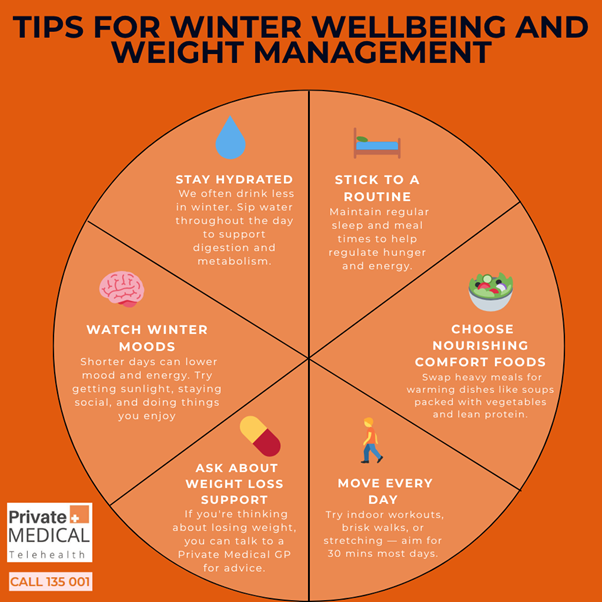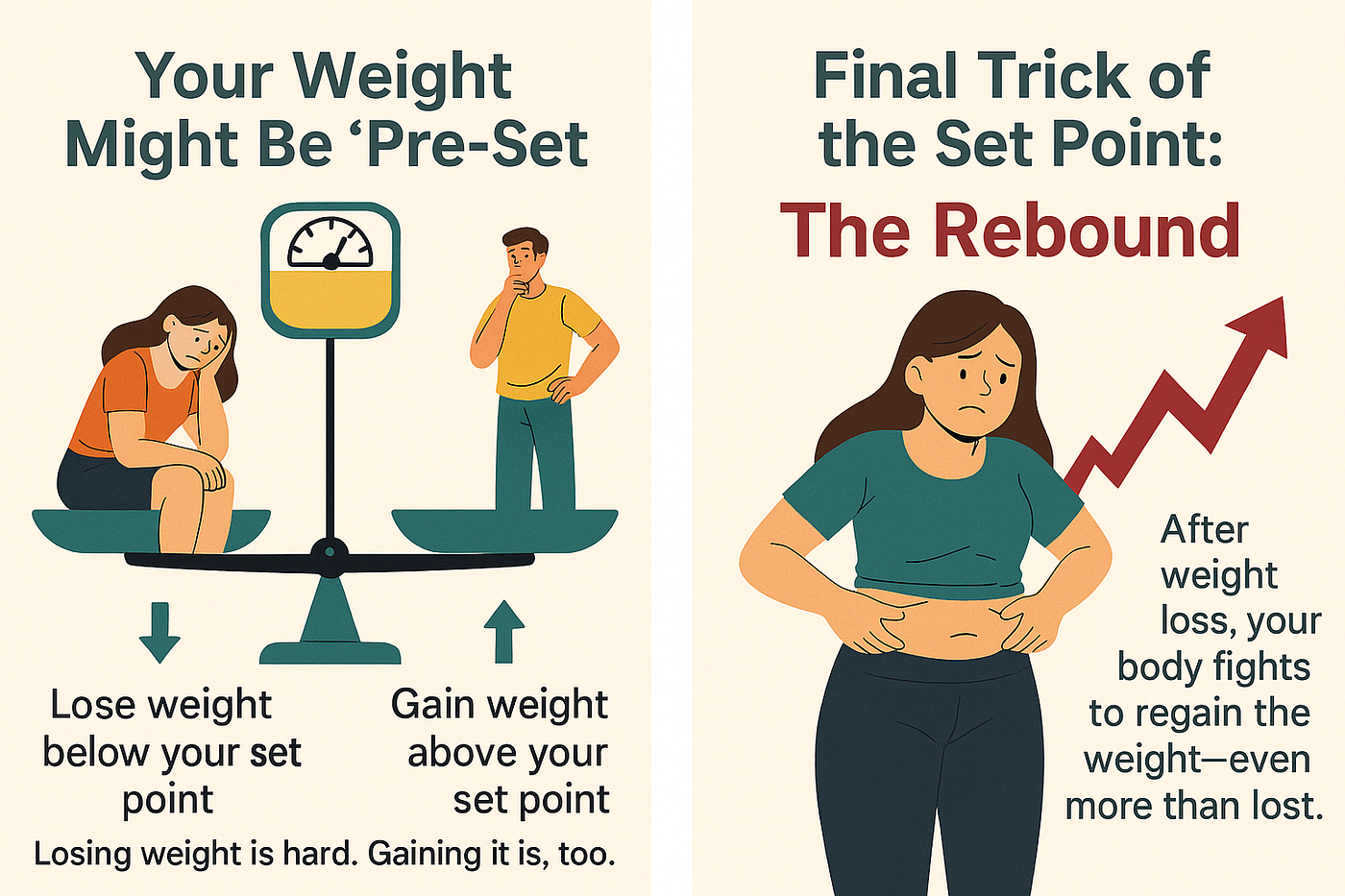You’ve worked hard to lose weight, and now the real challenge begins: keeping it off. It’s easy to slip back into old habits, but you don’t have to.
Imagine feeling confident every day, knowing your weight is steady without constant struggle. You’ll discover simple, effective strategies to maintain your weight for good. Keep reading to learn how small changes can make a big difference in your journey to lasting success.
Set Realistic Goals
Keeping your weight steady after losing it needs clear goals. Setting goals that you can reach helps you stay on track.
Realistic goals stop you from feeling frustrated. They also make your healthy habits last longer.
Create Achievable Milestones
Break your main goal into small steps. Each small win gives you a sense of progress.
Celebrate these milestones to keep your motivation high. This builds confidence to continue your journey.
- Track your weight weekly, not daily
- Set goals like eating more vegetables
- Plan regular physical activity you enjoy
Focus On Long-term Success
Think about habits that you can keep for life. Quick fixes often lead to regaining weight later.
Choose healthy changes that fit your daily life. This makes it easier to maintain your weight over time.
- Eat balanced meals regularly
- Stay active with simple exercises
- Get enough sleep every night
- Manage stress without food

Keep A Balanced Diet
Keeping a balanced diet is key to maintaining your weight after losing it. Eating well helps your body stay healthy and energized.
Focus on foods that support your health and control your hunger. This way, you can avoid gaining weight back.
Include Nutrient-rich Foods
Choose foods that give you vitamins, minerals, and fiber. These foods help your body work well and keep you full longer.
Examples of nutrient-rich foods are fruits, vegetables, whole grains, lean proteins, and healthy fats.
- Fruits like berries, apples, and oranges
- Vegetables such as spinach, carrots, and broccoli
- Whole grains like brown rice and oats
- Lean proteins including chicken, fish, and beans
- Healthy fats from nuts, seeds, and avocados
Control Portion Sizes
Eating the right amount of food helps keep your weight steady. Too much food can cause weight gain even if it is healthy.
Use smaller plates and pay attention to your hunger. Stop eating when you feel satisfied, not full.
- Serve smaller portions
- Eat slowly to notice fullness
- Avoid eating directly from packages
- Plan meals and snacks ahead
Limit Processed Foods
Processed foods often have extra sugars, salt, and unhealthy fats. These can add calories without nutrients.
Try to eat fresh, whole foods instead. This helps keep your diet balanced and supports weight maintenance.
- Avoid fast food and fried snacks
- Read labels to check for added sugars
- Choose fresh fruits and vegetables
- Cook meals at home when possible
Stay Active Regularly
Maintaining weight after losing it requires staying active every day. Regular activity helps burn calories and keeps your body healthy.
Being active also improves mood and energy. It supports your weight goals and overall well-being.
Incorporate Daily Exercise
Exercise should be part of your daily routine. Even short sessions can help maintain weight.
Try to find activities you enjoy. This makes it easier to keep moving every day.
- Walk or bike to places
- Do stretching or yoga
- Take stairs instead of elevators
- Play sports or dance
Mix Cardio And Strength Training
Use both cardio and strength exercises to stay fit. Cardio burns calories while strength training builds muscle.
Muscle helps your body burn more energy even when resting. This supports keeping weight off.
- Cardio examples: walking, running, swimming
- Strength training: lifting weights, bodyweight exercises
- Try to do both 3-4 times per week
- Balance helps avoid boredom and injury
Monitor Your Progress
Keeping track of your progress is key to maintaining your weight. It helps you stay aware of changes and adjust your habits.
Monitoring progress makes it easier to spot small shifts early. This way, you can keep your weight steady after losing it.
Track Weight And Measurements
Weigh yourself regularly to keep track of your weight. Use the same scale and weigh at the same time each day for best results.
Measure your waist, hips, and other areas too. Sometimes your weight stays the same, but your measurements change.
- Weigh once or twice a week
- Measure key body parts monthly
- Write down your numbers to see trends
Use Food And Activity Journals
Write down what you eat and how much you exercise. This helps you see your habits clearly and find areas to improve.
Journals keep you honest and aware. They remind you of your goals and keep you motivated to stay on track.
- Record meals and snacks daily
- Note exercise type and duration
- Review your journal weekly
Manage Stress Effectively
Keeping your weight steady after losing it needs more than just good eating. Stress can cause weight gain and make you want to eat more. Learning to handle stress helps keep your weight where you want it.
Stress affects your mood and energy. Finding ways to relax stops stress from causing unhealthy habits. This helps you stay healthy and keep your weight under control.
Practice Relaxation Techniques
Relaxation methods help calm your mind and body. They lower stress hormones that can lead to weight gain. Try different ways to see what works best for you.
- Deep breathing exercises
- Meditation for a few minutes daily
- Yoga or gentle stretching
- Listening to calming music
- Taking short walks outside
Practice these techniques regularly. They help you feel less stressed and more in control of your eating habits.
Avoid Emotional Eating
Many people eat when they feel sad, angry, or bored. This can cause weight gain or make it hard to keep weight off. Recognize when you are eating because of emotions, not hunger.
Find other ways to handle your feelings. This stops emotional eating and helps maintain your weight.
- Talk to a friend or family member
- Write in a journal to express feelings
- Do a hobby you enjoy
- Exercise to lift your mood
- Practice relaxation techniques

Get Quality Sleep
Sleep plays a big role in keeping your weight steady after losing it. Good sleep helps your body work well. It also controls hunger and energy levels.
Without enough rest, it is hard to stay on track with healthy habits. Focus on getting quality sleep every night for lasting weight control.
Establish A Sleep Routine
Go to bed and wake up at the same time each day. This helps your body get used to a schedule. It improves the quality of your sleep.
Try to relax before bedtime. Avoid screens and bright lights. Reading or listening to calm music can help you fall asleep easier.
- Set a regular bedtime and wake-up time
- Limit screen use before sleep
- Create a calm, dark, and quiet bedroom
- Avoid caffeine and heavy meals late in the day
Understand Sleep’s Role In Weight
When you sleep well, your body balances hormones that control hunger. Poor sleep can make you feel hungrier and less full.
Good sleep also helps your metabolism work better. It gives you more energy to exercise and make healthy choices.
- Sleep affects hunger hormones like ghrelin and leptin
- Less sleep can increase cravings for unhealthy food
- Proper rest boosts energy for daily activities
- Good sleep supports fat burning and muscle repair
Build Support Systems
Keeping your weight steady after losing it takes help from others. Support systems give you strength to stick with healthy habits.
Friends, family, and experts can guide you. They keep you motivated and accountable on your journey.
Engage With Like-minded Groups
Find groups that share your health goals. Talking to people with similar aims makes the process easier and fun.
These groups can be local clubs, online forums, or fitness classes. They provide advice and encouragement.
- Share tips and challenges
- Celebrate progress together
- Stay motivated through regular meetups
- Learn new healthy habits
Seek Professional Guidance
Talk to doctors, dietitians, or trainers who know about weight maintenance. They offer personalized plans to suit your needs.
Professionals help monitor your health and adjust your routine. Their advice prevents weight regain and promotes long-term success.
- Get regular health check-ups
- Follow a balanced meal plan
- Use expert workout routines
- Receive support for emotional health

Adapt And Stay Flexible
Keeping your weight steady after losing it needs changes in your habits. Life brings new challenges. You must be ready to adjust your approach.
Flexibility helps you handle different situations. It stops small setbacks from becoming big problems.
Adjust Plans As Needed
Your original plan might not work forever. Your body and schedule change over time. Watch how your weight reacts and change your plan if needed.
Try new foods, switch exercises, or change meal times. Small tweaks keep you on track without feeling strict.
- Track your weight weekly to notice trends.
- Switch workouts to keep your body active and interested.
- Change meal portions if hunger or fullness changes.
- Adjust goals to fit your current lifestyle.
Celebrate Small Victories
Recognizing small wins helps you stay motivated. Every healthy choice counts. It builds good habits for the long run.
Celebrate when you choose a healthy snack or finish a workout. These moments add up to big success.
- Reward yourself with a favorite activity, not food.
- Write down your successes to see your progress.
- Share your achievements with friends or family.
- Use positive words to encourage yourself daily.
Frequently Asked Questions
How Can I Prevent Weight Regain After Losing Weight?
To prevent weight regain, maintain a balanced diet and regular exercise routine. Monitor your portions and avoid processed foods. Stay consistent with healthy habits and track your progress to stay motivated. Regular physical activity boosts metabolism and supports weight maintenance effectively.
What Foods Help Maintain Weight Loss Effectively?
Choose whole foods like vegetables, fruits, lean proteins, and whole grains. These foods keep you full longer and provide essential nutrients. Avoid sugary snacks and high-calorie processed foods. Drinking plenty of water also aids digestion and helps control hunger, supporting weight maintenance.
How Often Should I Exercise To Maintain Weight Loss?
Aim for at least 150 minutes of moderate exercise weekly. Include cardio, strength training, and flexibility workouts. Regular physical activity helps burn calories and maintain muscle mass. Consistency is key to sustaining your weight loss and overall health.
Is Tracking Calories Necessary After Weight Loss?
Tracking calories helps maintain awareness of your intake and prevents overeating. It promotes mindful eating and helps adjust portions as needed. However, focus on healthy, nutrient-rich foods rather than just calorie counting for long-term success.
Conclusion
Maintaining weight requires commitment and small lifestyle adjustments. Consistent routines matter. Regular exercise and mindful eating keep you on track. Stay hydrated. Water helps control hunger. Sleep is crucial. Aim for 7-8 hours nightly. Monitor your progress. Use a journal or app.
Celebrate small victories. They build motivation. Surround yourself with supportive people. Join groups or find a buddy. Remember, balance is key. Indulge occasionally, but mind portions. Listen to your body. It knows best. Maintain a positive mindset. This journey is lifelong.
Stay determined, stay healthy. You’ve got this.



